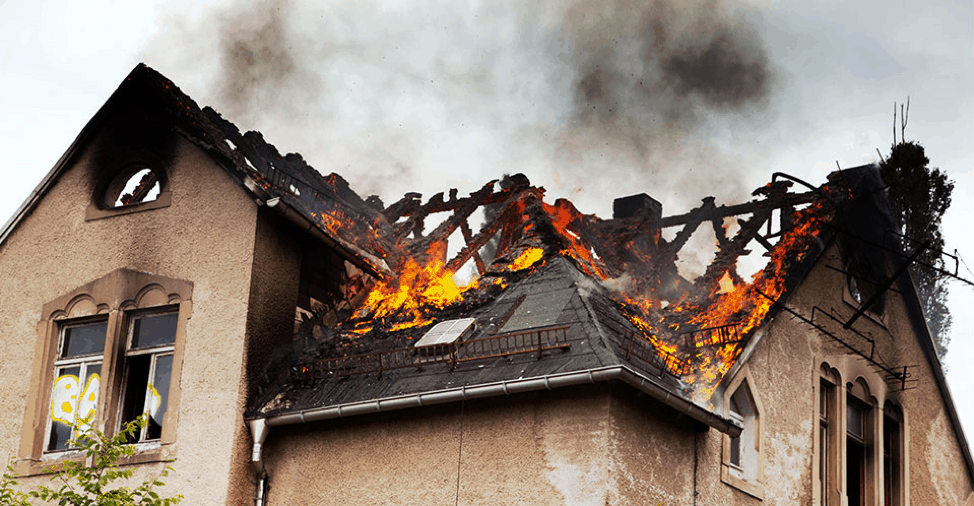How to Deal with Your Adjuster While Making Sure You Get Fair Compensation

Many homeowners worry about how to deal with their insurance adjuster throughout their home insurance claim. Home insurance claims have a major impact on your life. After a wildfire, house fire, or flood has damaged your home, you rely on your insurance coverage to repair your home, replace your belongings, and cover those new and additional living costs you will incur due to your displacement. Paying for any of these expenses out of pocket could impact your finances for years.
First, you should know who the insurance adjuster is and learn about their job. The insurance adjuster may be either an independent contractor for your insurance company, or a direct employee. Whether they work directly for the employer or not, homeowners should remember that they act for the insurance company, so they will have their best interest in mind; which won’t necessarily match the homeowners’ best interests.
Their job is to provide the company with a description and monetary estimate of your losses, which the insurance company will use to create or evaluate any settlement offers. The insurance adjuster will assess your lost belongings, additional living expenses, and the physical damage to the house. The insurer will consider their assessments and recommendations, along with any reports or quotes from engineers, contractors, or other construction actors, particularly for the Structure/Dwelling portion of your insurance coverage.
Policyholders may feel nervous dealing with the insurance adjuster. Consider following some of these tips or visit our resource centre for more information regarding your insurance claim.
#1 Take Notes
Any time you meet face-to-face or have a phone conversation with an insurance adjuster, take notes about the conversation. If there is a dispute in the future, these notes can invaluable evidence about the communication you have had with the insurance adjuster. Taking notes can help you minimize the damage of miscommunication and misunderstanding.
#2 Record Conversations
You may also want to record conversations with the insurance adjuster. With recording technology on every smartphone, it is easy to record face-to-face and phone conversations. Be clear before you start that you will be recording the conversation.
#3 Start the Process Right Away
It is your responsibility to inform the insurance company of your loss right away. Once your family is safe and secure, notify your insurance company of the loss. The Insurance company will need to know about the loss regardless of whether it was caused by a fire, wildfire, flood, or mass evacuation order. Failure to notify your insurance company in a timely manner can have important and serious impacts on your claim.
#4 Ask for a Cash Advance
“Loss of Use” or “Additional Living Expenses” are a major part of mass evacuation insurance and home insurance covering fire and floods. This section of your insurance policy covers new and extra living expenses incurred as a result of your displacement from your home. For example, they may include:
- Hotel stays immediately after a fire or while your town or neighbourhood is under an evacuation order;
- Long-term rental costs while your home is repaired;
- The higher cost of ready-made meals and takeout while you do not have access to a kitchen, but only the extra costs above your typical food expenditures;
- Additional travel costs; and
- Storage and moving costs.
These new costs can add up quickly, while you and your family are left waiting to settle your insurance claim or receive reimbursement. If you are struggling to pay for these costs now, ask your insurance company for a cash advance. A cash advance will be deducted from your final settlement, but it can ease the financial pressure from the start. With a cash advance, you can take more time to negotiate an accurate and fair settlement for the rest of your Additional Living Expenses claim.
#5 Draft a Provisional Schedule of Loss Before Signing Off
The homeowner is responsible for generating or perfecting the Schedule of Loss. The Schedule of Loss is a list of personal property that was lost or damaged in the fire or flood. Eligible personal property includes clothing, furniture, electronics, linens, media, artwork, kitchen equipment, and more. Making sure the list is complete is important, but it can be difficult to remember exactly what items you had in the home prior to the loss.
Policyholders should ask their friends and family for help creating this list. If you have kids or teenagers, they will remember what toys or clothes they had far more accurately than you can alone. You can also ask friends and extended family who were frequent guests in your home to provide more details. Another good idea is to rely on physical or social media photos, by looking in the background for room décor and personal possessions. You will also want to review credit card statements and Interac transactions from the past few years. These are an excellent way to remind yourself of lost personal possessions and prove their value.
It can be a long and intensive process. You can speed up the process by submitting a provisional Schedule of Loss to the insurance adjuster when you have the first set of items listed out. A provisional list is an incomplete draft to which you can add belongings as you remember them. Be clear that the list is provisional and that you intend to make additions and/or changes before signing off on any final settlements.
#6 Call Virani Law
The insurance adjuster works for the insurance company and may try their best to save their employer money. Homeowners can retain their own professional to act on their behalf as well, such as an insurance lawyer. It is always better to call a professional earlier in the claim process to navigate the earlier frustrations and set the tone for the rest of the claim. However, contacting a representative can happen at any time in your claim to ensure that your concerns are taken seriously.
A homeowner may also work with a public adjuster, an insurance adjuster who works on behalf of the policyholder. Home insurance lawyers can work on your behalf to resolve your claim through negotiation, but also through legal avenues if necessary, although bringing a lawsuit is a last resort. It is much faster and more affordable to settle a claim by negotiating with the insurance company, but the insurance company may be more open to negotiations when they are at the table with a professional who could escalate the claim if negotiations break down.
Call Virani Law if you are nervous about dealing with the insurance adjuster or if you are unhappy with the settlement offered by your insurance company.



